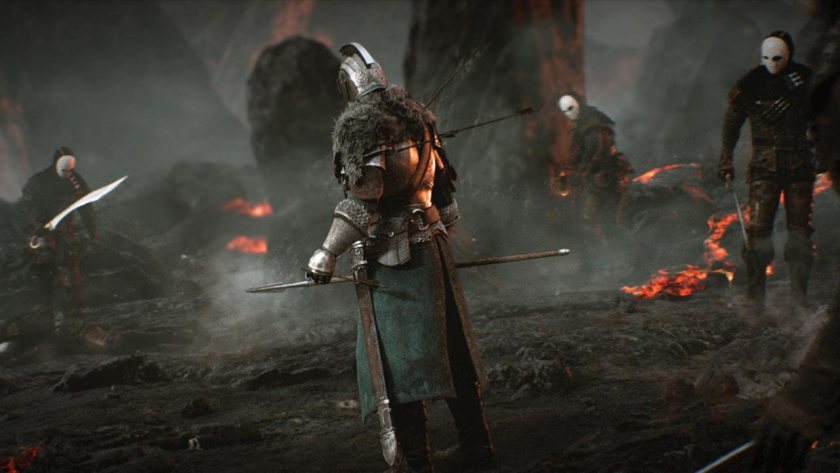The Souls games—Demon’s Souls, Dark Souls, and Dark Souls II—have famously excellent soundtracks. That’s not what this post is about.
I believe the most crucial aspect to the soundtrack in a Souls games is where it’s not heard: namely, almost everywhere. The boss-fight music in these games hits hard, in large part because until you found a boss, you’d been walking around with only the sounds of your own footsteps and the groans of hollows to accompany you. In contrast to the vast majority of games, where music for a particular area plays on a continuous loop, Souls games show restraint.
There’s a big exception: if you hang out in the “home” area of each game, you’ll hear the same sparse melody and accompaniment repeated ad nauseam. Even these pieces, though, hint in a small way at how the soundtrack is used in a broader sense.
In this most extreme of examples, we hear the music that is played in the Nexus throughout the majority of Demon’s Souls. This piece features a plucked harp melody accompanied by sustained strings, and—crucially—two measures of silence between each and every phrase. This single piece perfectly represents the whole game’s soundtrack: present, but only intermittently.
From Software rarely breaks this formula, but it does happen. In very few areas in these games, the player will hear diegetic—or “source”—music. Examples include the Milfanito at the Shrine of Amana in Dark Souls 2 and the Once Royal Mistress at the Tower of Latria in Demon’s Souls. These occurrences stick out because they are so infrequent. In each case, players hear the music before they find its source, which leads to unease, curiosity, and dread. By adding this unique twist to a small area in each game, From reminds players: “You think you know how this game works, but we can break the rules at any time.” It’s a small thing that sends a big message.
The quality of the music itself is important, of course. You can’t effectively use silence if you don’t have powerful music to contrast it, and composers Motoi Sakuraba (Dark Souls and Dark Souls II) and Shunsuke Kida (Demon’s Souls) did not come up short. From the bombastic Ornstein and Smough fight to the minimalistic Fool’s Idol music to the gut-wrenching Maiden Astraea battle, Souls soundtracks run the gamut in tone and emotion, but always with an orchestration that is more evocative than it is melodic. Trying to hum along with one of these tracks is no easy task.
From Software has always done things a little differently than other developers, and that’s a huge reason why so many fans are all-in on its games. With Bloodborne representing a new intellectual property and new composer Michael Wandmacher on board for the project, there’s no telling how many big and small changes to this overall approach we can expect. But if we’re basing our predictions on history, there’s a couple things we can presume: the soundtrack will be intellectually compelling and its deployment will be tastefully restrained. Other than that, all we can do is wait and see.
